by Ken Sehested
Texts: Genesis 4:1-16; Psalm 133; Matthew 18:1-22
"Why do we kill people to show that killing people is wrong?"
The logic of that bumper-sticker aphorism sounds so simple. Is it simplistic? If you think so, ponder this more complex quote in 1994 by former Supreme Court Justice Harry Blackmun, who died earlier this year:
From this day forward, I shall no longer tinker with the machinery of death. For more than 20 years I have endeavored—indeed, I have struggled—along with a majority of this court to develop procedural and substantive rules that would lend more than the mere appearance of fairness to the death penalty endeavor. Despite the effort … the death penalty remains fraught with arbitrariness, discrimination, caprice and mistake. I feel morally and intellectually obligated simply to concede that the death penalty experiment has failed.
This morning's service is the focal moment for an entire month's emphasis here at Oakhurst on the criminal justice system and our response to it. Planners for this morning's worship have collaborated so that this service coincides with the larger national campaign to abolish capital punishment.
It is especially appropriate for the church to reflect on the relation between crime and justice. Among the world's religions, ours is the only one whose founder suffered capital punishment. The visitation of prisoners was on Jesus' short list of disciple activities reflecting one's eternal destination. Here in the U.S., the institutions of criminal justice were organized by Christians—Quakers, in particular—as an experiment in social reform. (Did you know that our word "penitentiary" comes from their intended use as places of penitence, where wrong-doers could repent of their transgressions and then be reintroduced to law-abiding society.)
But something has gone wrong. Terribly wrong. Way wrong.
Did you know, for instance,
•that the prison population in the U.S. has increased five-fold since 1970? That since 1980 the incarceration rate per capita has increased more than 200%?
•that prison construction is among the leading growth industries in the U.S.?
•that nearly one-third of African-American males, ages 20-29, are under some type of correctional control (prison, probation or parole); that two-thirds of the prison population is either black or Hispanic?
•that among the world's nation-states, only Russia has a higher per capita prison population?
Did you know that
•among Western democracies, the U.S. is the only country which retains the death penalty (for civilian crimes)?
•that the vast majority of the world's nations have either formally abolished the death penalty or no longer effectively implement it?
•two states—California and Florida—now spend more on prisons than on higher education? In fact, a couple years ago, in an ironic piece of timing, one state agency in California announced that it was in the process of hiring 10,000 new prison maintenance employers just after another state agency announced its approval of a plan to lay off the same number of college and university teachers.
•the rates of incarceration have been skyrocketing at the very time when crime rates have been falling?
The cynic's prediction seems to be coming true: The day is coming when there will be just two kinds of people—prisoners and guards.
Will Campbell writes about a door-to-door evangelist that visited his porch some years ago. He wanted to know if Bro. Will knew the Lord Jesus Christ as his personal Lord and Savior, to which Campbell responded with an enthusiastic YES. The questioning continued, as all such inquisitors do, until the question was raised about the infallibility of the Bible. "You believe that, too!" Will responded. "Why I'm so happy to hear that. You see, there's a group of us going down to the Nashville jail this afternoon. We're gonna' close that sucker down . . . set the prisoners free, just like Jesus said. Why don't you come along with us?"
Turning to the Bible for answers about criminal justice in general, and capital punishment in particular, isn't a simple affair.
The Torah—the first five books of the Bible—is ancient Israel's code book for behavior; and it stipulates the death penalty for a host of crimes:
•for murder (Gen. 9:6)
•for owning an animal that kills people (Ex. 21:14, 29)
•for kidnapping (Gen. 9:6)
•for giving false witness against a defendant in a death penalty trial (Deut. 18:18-21)
•for a host of sexual transgressions, including incest, adultery, bestiality, homosexual activity, rape—and for having sex with your wife during her menstrual period (Ex. 22:19; Deut. 22:21, 24, 25; Lev. 20:10-14; 21:18)
•for witchcraft and sorcery (Ex. 22;18; Lev. 20:27)
•for breaking the sabbath (Ex. 31:14; Num. 15:32-36)
•for child sacrifice (Lev. 21:9)
•for falsely claiming to be a prophet (Deut. 13:5, 10)
•for blasphemy (Lev. 24: 15-16)
•and for a non-Levite who enters the sacred place of the temple (Num. 1:51; 3:10, 38; 18:7)
And then there's my favorite: for a stubborn son's disobedience to his mother or father (Ex. 22:19; Deut. 22:21; Lev. 20:9; Deut. 21:18-21) I can tell you—there are a lot of us sons who are happy we didn't grow up in homes that took this particularly text literally!
But on the other hand, in Scripture's first account of a capital offense—when Cain committed premeditated murder against his brother Abel—the offender was given divine protection against retaliation and vengeance. Neither did Moses suffer any consequences after his act of murder. In fact, he was chosen to lead the children of Israel out of Egyptian bondage. And what about King David, who gave the orders for the death of his lover's husband? After repenting, David received this sentence from God via the prophet Nathan: "The Lord has put away your sin; you shall not die" (2 Sam. 11-12).
Similarly, Jesus side-stepped Scripture when the scribes and Pharisees brought the woman caught in adultery to Jesus. The law of Moses demanded such criminals be stoned to death. Jesus refused to be drawn in to such sentencing (John 8). In an even more blatant contradiction of Scripture, Jesus said, "You have heard it said, 'an eye for an eye and a tooth for a tooth.' But I say to you, do not resist an evildoer" (Matt. 5:38ff)—which is a blundering translation of his statement, which is rendered more accurately as: "do not set yourself in violent or revengeful resistance against an evil-doer" or "do not respond in like manner to the evil-doer." The Apostle Paul spoke in a similar way when he wrote: "Do not be overcome by evil, but overcome evil with good" (Romans 12:21).
Indeed, the Apostle, building on statements from Hebrew Scripture (Lev. 19:18; Deut. 32:35), expressly forbids vengeance: "Beloved, never avenge yourselves, but leave it to the wrath of God; for it is written: 'Vengeance is mine, I will repay, says the Lord.'" (Rom. 12:19)
So why do we kill people to show that killing people is wrong?
Actually, I'm not so interested in your convictions about capital punishment. Regardless of whether you're for it or against it—or if you're just not sure what you think—I'm less interested in getting you to take a position as I am in getting you to take action. Regardless of what you think, there's a way you can be redemptively involved in the arena of criminal justice. There's a new paradigm, a new perspective, on crime and justice issues which is far more helpful in guiding the church's involvement in changing the vengeance-based motivation for responding to crime.
This new perspective is referred to as "restorative justice." Maybe you've heard the phrase. It's been formally articulated just in the past few decades. In this particular case, much of the credit goes to our Mennonite friends for developing these ideas in real-life experiments in dealing with criminals.
Let me briefly mention some of the highlights of this new framework for thinking about and responding to criminal justice issues.
First of all, those who advocate a switch to a restorative justice model for dealing with criminal behavior are not "soft on crime." The Bible is serious about the reality of evil; and those who advocate for restorative justice make no attempt to rationalize criminal behavior. People do bad things and must be held accountable. But a vision of restorative justice redefines crime and punishment, and counters our nation's relentlessly unproductive and exorbitantly expensive system of justice based on retribution and vengeance.
Second, the restorative justice paradigm takes the pain of victims more seriously.
Let me quote from an article by the Baptist Peace Fellowship's business manager, Evelyn Hanneman, who for years has been an advocate for restorative justice:
Our current retributive system views crime as an affront to the power of the state, and asks the questions, "What law was broken? Who broke it? What is the punishment to be?" It is easy to see that the victim has little, if any, place in such a system.
On the other hand, restorative justice defines crime as injury to the victim and the community. It asks, "What harm was done? What needs to be done to repair the harm: Who is responsible for repairing the harm?" Restorative justice affirms that the harm done by crime is best healed when the offender is held accountable for his or her actions and responsible for making things right. ("Restorative Justice: A biblically-based paradigm for justice," in Baptist Peacemaker, Winter 1998, pp. 6-7)
In the retributive justice system, offenders are held accountable by means of punishment; in the restorative justice system, accountability is defined as assuming responsibility and taking action to repair harm.
In the restorative justice system, victims are central to the process, not peripheral.
In the restorative justice system, the offender is defined not by deficits but by their capacity to make reparation.
In the restorative justice system, the focus is on solving problems, on liabilities and obligations, on the future—rather than on establishing blame and guilt and on the past.
In the restorative justice system, restitution and reconciliation for all parties involved is the goal—the restoration of just relations in the community—rather than simply the imposition of pain against the perpetrator.
All of which is to say: The institutionalization of vengeance as represented by the modern criminal justice system in the U.S. has failed and will continue to fail in bringing healing to our communities. Vengeance is a vanity we can no longer afford. Our society is slowly being smothered under its weight. The Christian community—along with all people of good faith—needs to bring to bear the weight of its vigorous convictions on all appropriate public policy mechanisms to see that our current criminal justice system is transformed.
There are very practical things you can do—practical things which this congregations, and others in the Atlanta area, are already doing. Advocacy for the application of restorative justice principles to criminal justice institutions is a form of peacemaking—of restoring right-relatedness within our communities—and with creation itself, since there are plenty of crimes against the non-human parts of creation as well. (You should know, by the way, that the FBI's annual listing of crime statistics does NOT include the multitude of corporations who are fined billions of dollars each year after being convicted of environmental degradation.)
The restorative justice paradigm is good public policy, pure and simple. In the numerous places where experiments are underway, it's getting results. It will actually save our governments a lot of money. But for us, as Christians, advocating restorative justice principles is reflective of our identity as believers in the Good News of the Gospel.
The principle text for this service, from Genesis, is the story of the first murder recorded by Scripture. Even more, it is the cosmic telling of the human condition. The break with God, in the garden of Eden, is followed immediately by the first homicide, the murder of Abel by his brother Cain.
Some parts of this story are difficult to comprehend. For one thing, the text gives no clue as to why Abel's sacrifice to God is pleasing while Cain's is not. There have been centuries of speculation at this point, and it's an interesting discussion, but not for now. The crucial issue to which I want to draw your attention is not the cause for the provocation but the dialog of confrontation between God and Cain and before the actual murder takes place.
And the Lord had regard for Abel and his offering, but for Cain and his offering he had no regard. So Cain was very angry, and his countenance fell. The Lord said to Cain, "Why are you angry, and why has your countenance fallen? If you do well, will you not be accepted? And if you do not do well, sin is lurking at the door; its desire is for you, but you must master it." (Genesis 4:4b-7)
Theologians often refer to the "doctrine of the fall" in reference to the story in Genesis 3—the story of Adam and Eve's expulsion from the garden—as if humankind were forever more afterwards incapable of righteous and just action. But here in chapter four, the implication of God's questions to Cain does not imply such a fatalistic vision. God addressed Cain as a moral agent capable of choosing rightly and righteously. Abel's murder is not inevitable; the future is not circumscribed by fate, but remains open: If you do well.
But the option of violence—"sin lurking at the door"—is real and available. And violence contains within itself a self-escalating tendency. Violence begets violence, as illustrated by the remainder of chapter four of Genesis. Immediately following the story of Cain's murder is a brief genealogy of five generations of Cain's descendants, culminating with Lamech. And the only thing we know about Lamech is this quote: "I have killed a man for wounding me; a young man for striking me. If Cain is avenged sevenfold, truly Lamech seventy-sevenfold" (Gen. 4:23a-24). Indeed, the relation between sin and violence is established at the very beginning of Scripture. Two chapters later, in chapter six, the relationship between the two is stated in concise and explicit terms: "Now the earth was corrupt in God's sight, and the earth was filled with violence" (6:11). The presence of physical violence is the unmistakable indicator of spiritual corruption and sin.
Such is the harvest of vengeance. "An eye for an eye" is never enough. The logic of vengeance is that violence must be compounded in order to be effective. As Mahatma Gandhi wrote, "Practicing 'an eye for an eye' justice will only end up making the whole world blind."
But this God is the God who longs for restoration, not vengeance. The entire collection of stories and teachings in Scripture is aimed in this direction: of God's repeated attempts to restore right-relatedness, to restore justice and righteousness, not to punish and destroy. And it is a story which, for us as Christians, culminates in the story of Jesus, whom we confess as God's Only Begotten, whose repeated message was a variation on the demand that followers must love, not hate, their enemies—for such behavior is the distinctive marking of the children of the Abba.
Only such behavior—rooted in the confidence that God's intention is not to punish but to restore, in the suffering love of the One who promises to dry every tear, in the assurance that grace is greater than all our sins—only such behavior is consistent with the redemptive purposes of God.
Only such behavior can effectively respond to the threat of Cain's murderous impulse—an impulse magnified and expanded in the threat of Lamech. And thus did Jesus reply to Lamech's threat about the limitations of forgiveness. When Peter asks, in Matthew 18, whether forgiveness should be "as many as seven times?", Jesus responds: "Not seven times, Peter; but seventy times seven," which is to say: As much as it takes for justice to be restored. Lamech's threatened holocaust is countered with Jesus' standard of obedience.
Walter Wink has written that the most fundamental challenge facing the church is the myth of redemptive violence. Most Christians, along with most everyone else in the world, believe there are at least some occasions of sin, of fractures in the human community, which must be addressed by violent means. This sermon about restorative justice is at bottom a sermon about nonviolence—as are all my sermons—because I believe the Gospel of Jesus Christ is best understood in our day as the message of nonviolence. Not simply as tactical strategy for doing good things in the world, but as the very shape of conversion, of repentance and salvation from the power of death, of empowering by the Spirit to proclaim with our very lives and our lips the redemptive message of the Gospel.
Today I commend to you the practical model for restructuring our criminal justice system which restorative justice represents, as a means of addressing the crushing failure of our criminal justice system. A number of people right here in Oakhurst's membership know more than I about this. Check with members of the prison and jail ministry group; they have much to teach you. And they have ways you can be involved.
But I also offer for your discernment the conviction that the theory and practice of nonviolence is the most fruitful way for understanding God's purposes, for comprehending the messianic mission of Jesus, and for being swept up in the power of the Holy Spirit. The disarming of the heart and the disarming of the nations are tied up together. IF YOU DO WELL, the grace of our Lord is abundantly available to protect you from sin's desire and to equip you with the weapons of the Spirit for waging peace in a land committed to violence and death.
This, I dare say, is the word of the Lord.
Oakhurst Baptist Church, Decatur, GA
Sunday, 10 October 1999
©Ken Sehested @ prayerandpolitiks.org


 ¶ Invocation. “Nothing can trouble, nothing can frighten. / Those who seek God shall never go wanting. / God alone fills us.” —Listen to the Taizé chant “
¶ Invocation. “Nothing can trouble, nothing can frighten. / Those who seek God shall never go wanting. / God alone fills us.” —Listen to the Taizé chant “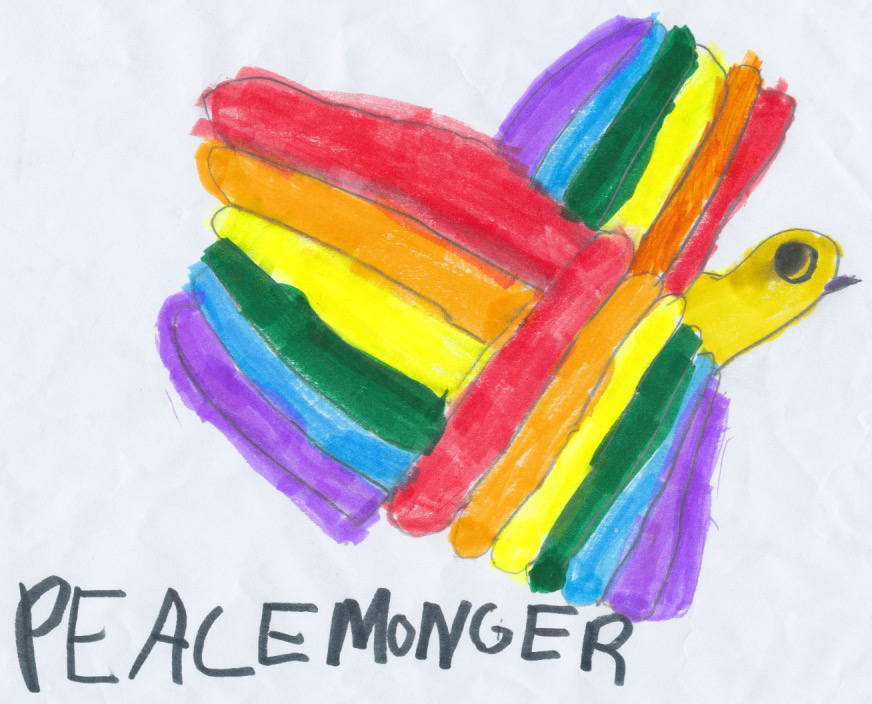 “We urge governors, prosecutors, judges and anyone entrusted with power to do all that they can to end a practice that diminishes our humanity and contributes to a culture of violence and retribution without restoration,” the group said in a statement released the week Christians around the world commemorate the suffering and execution of Jesus leading up to Easter.
“We urge governors, prosecutors, judges and anyone entrusted with power to do all that they can to end a practice that diminishes our humanity and contributes to a culture of violence and retribution without restoration,” the group said in a statement released the week Christians around the world commemorate the suffering and execution of Jesus leading up to Easter. ¶ Traveling with an interfaith delegation to Iraq in 2000, to assess the impacts of US-led sanctions, I didn’t realize until it was too late that my passport had an Israeli visa stamp. At the time, Iraq didn’t allow any person with such into their country. By means of a chemical bath, I managed to erase the ink of my Israeli entry stamp but not the exit. An attempted disguise didn’t fool the Iraqi border guard, and I very nearly had to hitchhike the 500 miles back to Amman, Jordan. Luckily our driver, who had made this trip dozens of time, was quick on his feet—a small bribe secured my entry.
¶ Traveling with an interfaith delegation to Iraq in 2000, to assess the impacts of US-led sanctions, I didn’t realize until it was too late that my passport had an Israeli visa stamp. At the time, Iraq didn’t allow any person with such into their country. By means of a chemical bath, I managed to erase the ink of my Israeli entry stamp but not the exit. An attempted disguise didn’t fool the Iraqi border guard, and I very nearly had to hitchhike the 500 miles back to Amman, Jordan. Luckily our driver, who had made this trip dozens of time, was quick on his feet—a small bribe secured my entry. ¶ It was Jewish political theorist Hannah Arendt who coined the phrase “the banality of evil” in her book, Eichmann in Jerusalem,” describing the composure, during his trial, of the Nazi SS (Schutzstaffel) leader Adolph Eichmann who managed the logistics of Hitler’s “Final Solution,” the genocidal plan to eliminate the Jewish people. What was most striking about Eichmann, says Arendt, was that he expressed neither guilt nor hatred; that he was neither beastly nor sadistic and was judged fully sane by a psychiatrist; that he endlessly insisted that he was only following orders; that what he did was fully legal; that he was only doing his job—all of which is true, which makes it all the more frightening.
¶ It was Jewish political theorist Hannah Arendt who coined the phrase “the banality of evil” in her book, Eichmann in Jerusalem,” describing the composure, during his trial, of the Nazi SS (Schutzstaffel) leader Adolph Eichmann who managed the logistics of Hitler’s “Final Solution,” the genocidal plan to eliminate the Jewish people. What was most striking about Eichmann, says Arendt, was that he expressed neither guilt nor hatred; that he was neither beastly nor sadistic and was judged fully sane by a psychiatrist; that he endlessly insisted that he was only following orders; that what he did was fully legal; that he was only doing his job—all of which is true, which makes it all the more frightening.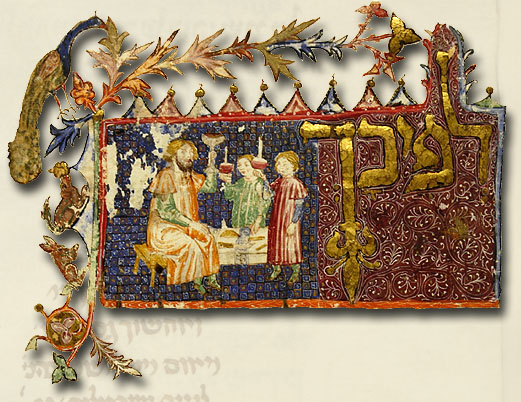 Illustration (left) from the 14th century Kaufmann Haggadah.
Illustration (left) from the 14th century Kaufmann Haggadah. ¶ Yom HaShoah (aka “Holocaust Remembrance Day,” more formally “Holocaust Martyrs’ and Heroes’ Remembrance Day”) is observed one week after the end of Passover, this year beginning at sundown on Wednesday 15 April, the date linked to the anniversary of the 1943 Warsaw Ghetto uprising. Increasingly, the word Shoah (“calamity”) is preferred because holocaust has historical roots in the Hebrew word olah, meaning “completely burnt offering to God,” with the implication that Jews and other “undesirables” murdered by the Nazis during World War II were a sacrifice to God.
¶ Yom HaShoah (aka “Holocaust Remembrance Day,” more formally “Holocaust Martyrs’ and Heroes’ Remembrance Day”) is observed one week after the end of Passover, this year beginning at sundown on Wednesday 15 April, the date linked to the anniversary of the 1943 Warsaw Ghetto uprising. Increasingly, the word Shoah (“calamity”) is preferred because holocaust has historical roots in the Hebrew word olah, meaning “completely burnt offering to God,” with the implication that Jews and other “undesirables” murdered by the Nazis during World War II were a sacrifice to God.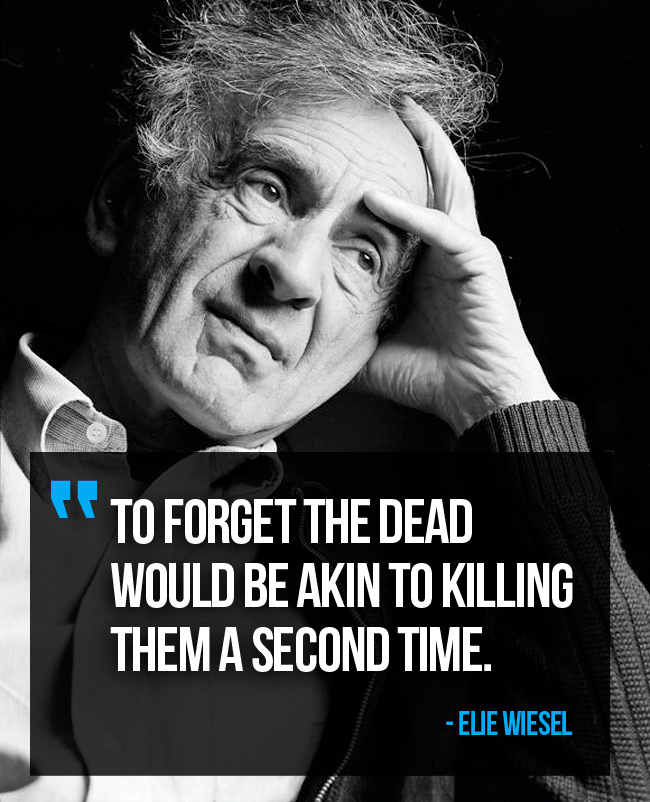 ¶ Profession of faith. “I have looked our destruction, our miserable end, straight in the eye and accepted it into my life, and my love of life has not been diminished. I am not bitter or rebellious, or in any way discouraged. . . . My life has been extended by death, by accepting destruction as part of life and no longer wasting my energies on fear of death or refusal to acknowledge its inevitability. It sounds paradoxical: by excluding death from our life we cannot live a full life, and by admitting death into our life we enlarge and enrich it.” —Etty Hillesum, An Interrupted Life (A Dutch Jew, Hillesum died at age 29 in Auschwitz, the Nazi concentration camp, in 1943. Her story been referred to as the adult counterpart to that of Anne Frank.
¶ Profession of faith. “I have looked our destruction, our miserable end, straight in the eye and accepted it into my life, and my love of life has not been diminished. I am not bitter or rebellious, or in any way discouraged. . . . My life has been extended by death, by accepting destruction as part of life and no longer wasting my energies on fear of death or refusal to acknowledge its inevitability. It sounds paradoxical: by excluding death from our life we cannot live a full life, and by admitting death into our life we enlarge and enrich it.” —Etty Hillesum, An Interrupted Life (A Dutch Jew, Hillesum died at age 29 in Auschwitz, the Nazi concentration camp, in 1943. Her story been referred to as the adult counterpart to that of Anne Frank.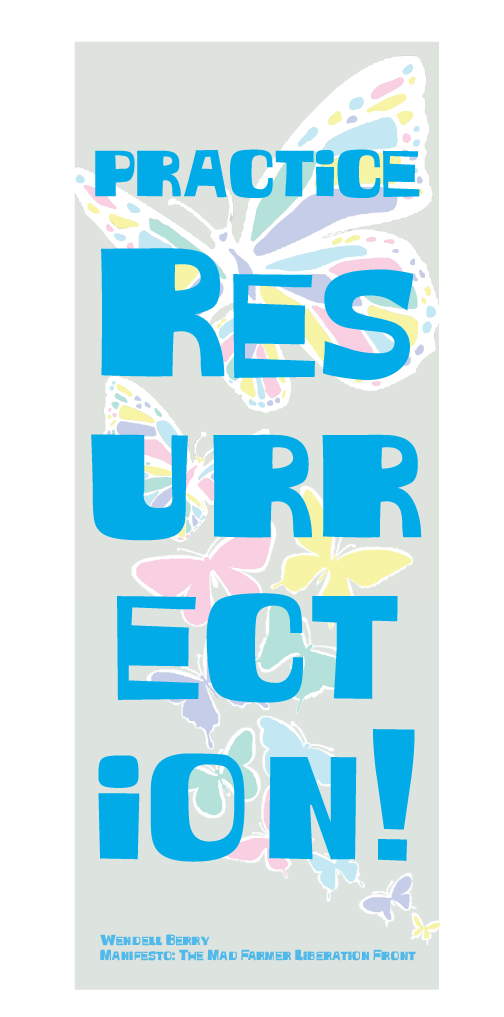 ¶ Good Friday? There are a host of explanations as to how “good” came to be attached to Holy Weeks’ “Friday.” (Germans use the word Karfreitag, “Sorrowful Friday,” which seems more straightforward.) Maybe the ironic modifier “good” simply lends itself to creative exploration. Maybe Good Friday represents the commitment we carry in the midst of the collision between sorrow and joy, despair and hope, imperial aspiration and the one Lordship that undermines all lording, Pax Romana and Pax Christi.
¶ Good Friday? There are a host of explanations as to how “good” came to be attached to Holy Weeks’ “Friday.” (Germans use the word Karfreitag, “Sorrowful Friday,” which seems more straightforward.) Maybe the ironic modifier “good” simply lends itself to creative exploration. Maybe Good Friday represents the commitment we carry in the midst of the collision between sorrow and joy, despair and hope, imperial aspiration and the one Lordship that undermines all lording, Pax Romana and Pax Christi. ¶ Invocation. It’s not the Muslim, not the Jew, but it’s me, O Lord, standing in the need of prayer. —old spiritual, new verse
¶ Invocation. It’s not the Muslim, not the Jew, but it’s me, O Lord, standing in the need of prayer. —old spiritual, new verse ¶ The message from Eduardo came with the asunto [subject] line “First time ever!!!!” followed by several photos, taken at the Cuban Institute of Friendship with the People office in Ciego de Avila, where the St. Paul, Minnesota-based Global Volunteers delegation presented an American flag as a gesture of hope for reconciliation. Rev. Eduardo Gonzalez (at left, center, back row), pastor of Iglesia Bautista Enmanuel, served as the local host.
¶ The message from Eduardo came with the asunto [subject] line “First time ever!!!!” followed by several photos, taken at the Cuban Institute of Friendship with the People office in Ciego de Avila, where the St. Paul, Minnesota-based Global Volunteers delegation presented an American flag as a gesture of hope for reconciliation. Rev. Eduardo Gonzalez (at left, center, back row), pastor of Iglesia Bautista Enmanuel, served as the local host. ¶ Foot washing. Some years ago, in a visit to our partner congregation in Cuba, our hosts asked us to plan and lead their Wednesday worship service. We chose to focus on the Gospel of John’s “Lord’s Supper” account, where there is no ritual bread and wine observance, only Jesus washing the disciples’ feet. We asked Iglesia Getsemani leaders if we might do a foot washing ritual and found out they had been previously been discussing this. (Pictured at right are two of our members washing the feet of Rev. Angela Hernandez, Iglesia Getsemani’s pastor.)
¶ Foot washing. Some years ago, in a visit to our partner congregation in Cuba, our hosts asked us to plan and lead their Wednesday worship service. We chose to focus on the Gospel of John’s “Lord’s Supper” account, where there is no ritual bread and wine observance, only Jesus washing the disciples’ feet. We asked Iglesia Getsemani leaders if we might do a foot washing ritual and found out they had been previously been discussing this. (Pictured at right are two of our members washing the feet of Rev. Angela Hernandez, Iglesia Getsemani’s pastor.) “Christ Washing the Feet of the Apostles” by Meister des Hausbuches, 1475, Gemäldegalerie art museum, Berlin, Germany
“Christ Washing the Feet of the Apostles” by Meister des Hausbuches, 1475, Gemäldegalerie art museum, Berlin, Germany ¶ Regret is not repentance. Rather, “regret” is often a self-centered sentiment designed to draw attention away from the situation of harm and blind to the requirements of repair.
¶ Regret is not repentance. Rather, “regret” is often a self-centered sentiment designed to draw attention away from the situation of harm and blind to the requirements of repair. ¶ There’s no getting over a certain foreboding in Holy Week liturgies (the “Triduum” of Maundy Thursday, Good Friday and Holy Saturday), including a dimly-lit Tenebrae (literally, “shadows”) service which typically ends in total darkness and silent recessional. We need a reminder that Jesus didn’t die of a heart attack; that he sweat blood trying to figure out an alternative to what by now seemed inevitable; that his closest friends deserted him. He was executed, in the most publicly shameful manner available, as the Roman Empire’s terror-inspiring warning against all insurgent aims.
¶ There’s no getting over a certain foreboding in Holy Week liturgies (the “Triduum” of Maundy Thursday, Good Friday and Holy Saturday), including a dimly-lit Tenebrae (literally, “shadows”) service which typically ends in total darkness and silent recessional. We need a reminder that Jesus didn’t die of a heart attack; that he sweat blood trying to figure out an alternative to what by now seemed inevitable; that his closest friends deserted him. He was executed, in the most publicly shameful manner available, as the Roman Empire’s terror-inspiring warning against all insurgent aims. ¶ Don’t be surprised when you walk down the aisle of your local CVS to find that the company has decided to do its part in supporting our troops. For $3.99, you can buy a package of camouflage-colored Easter eggs, with matching green and white armed plastic soldiers—the “toy prizes” are just like the jellybeans of Easters past and, according to CVS, “Perfect for Easter egg hunts.” —Nancy Aykanian, “CVS Makes War on Easter,” Common Dreams
¶ Don’t be surprised when you walk down the aisle of your local CVS to find that the company has decided to do its part in supporting our troops. For $3.99, you can buy a package of camouflage-colored Easter eggs, with matching green and white armed plastic soldiers—the “toy prizes” are just like the jellybeans of Easters past and, according to CVS, “Perfect for Easter egg hunts.” —Nancy Aykanian, “CVS Makes War on Easter,” Common Dreams ¶ Hershey’s wants a piece of Easter action, too, with a milk chocolate cross. (I didn’t see a fair trade dark chocolate option.)
¶ Hershey’s wants a piece of Easter action, too, with a milk chocolate cross. (I didn’t see a fair trade dark chocolate option.) ¶ "To preach to the powerful without denouncing oppression is to promise Easter without Calvary, forgiveness without conversion, and healing without cleansing the wound." —"From What We Have Seen and Heard: A Pastoral Letter on Evangelization From the Black Bishops of the United States," 1984
¶ "To preach to the powerful without denouncing oppression is to promise Easter without Calvary, forgiveness without conversion, and healing without cleansing the wound." —"From What We Have Seen and Heard: A Pastoral Letter on Evangelization From the Black Bishops of the United States," 1984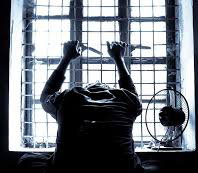 ¶ Invocation. “Why, when God's world is so big, did you fall asleep in a prison of all places?” —Rumi
¶ Invocation. “Why, when God's world is so big, did you fall asleep in a prison of all places?” —Rumi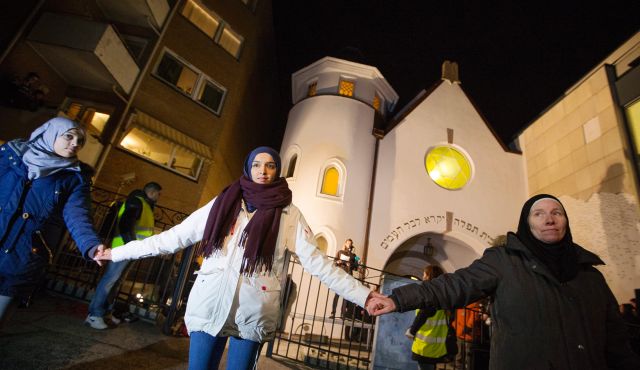 ¶ Good news you likely didn’t hear. An interfaith crowd of more than 1,000 surrounded Oslo, Norway’s main synagogue on Saturday 21 February, chanting “No to anti-Semitism, no to Islamophobia.” The event, organized by Muslim youth in the city, was done in solidarity with Norway’s Jewish community on the heels of the murder of two people outside the synagogue the previous week.
¶ Good news you likely didn’t hear. An interfaith crowd of more than 1,000 surrounded Oslo, Norway’s main synagogue on Saturday 21 February, chanting “No to anti-Semitism, no to Islamophobia.” The event, organized by Muslim youth in the city, was done in solidarity with Norway’s Jewish community on the heels of the murder of two people outside the synagogue the previous week. ¶ Confession. “Like many people concerned about ‘humanity,’ [European novelist Arthur Koestler] was contemptuous of actual humans. —description of Koestler by Christopher Caldwell, in a review of Michael Scammel’s Koestler: The Literary and Political Odyssey of a Twentieth-Century Skeptic, New York Times Book Review
¶ Confession. “Like many people concerned about ‘humanity,’ [European novelist Arthur Koestler] was contemptuous of actual humans. —description of Koestler by Christopher Caldwell, in a review of Michael Scammel’s Koestler: The Literary and Political Odyssey of a Twentieth-Century Skeptic, New York Times Book Review ¶ Congratulations! This year is the 25th anniversary of the historic American With Disabilities Act of 1990—though churches were exempted from its provisions. A coalition of faith groups is seeking 2,500 faith communities to formally pledge (prior to 26 July) their commitment to full implementation of the Act’s provisions. Consider putting this initiative to your congregation. Even if you’re already in compliance, there is pastoral value in having this conversation. You can find the pledge
¶ Congratulations! This year is the 25th anniversary of the historic American With Disabilities Act of 1990—though churches were exempted from its provisions. A coalition of faith groups is seeking 2,500 faith communities to formally pledge (prior to 26 July) their commitment to full implementation of the Act’s provisions. Consider putting this initiative to your congregation. Even if you’re already in compliance, there is pastoral value in having this conversation. You can find the pledge 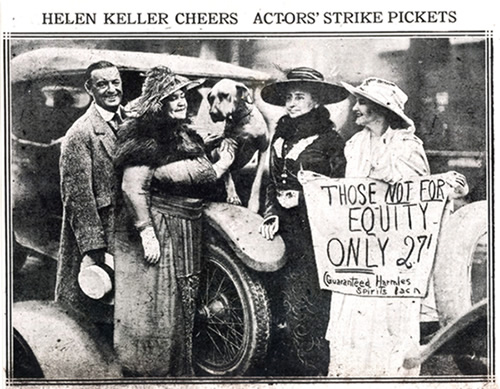 ¶ Americans With Disabilities Act meets Women’s History Month: The Helen Keller you never knew. Helen Keller is most often depicted simply as a courageous individual who overcame the severe phyisical obstacles of being deaf and blind. But that’s not half the story.
¶ Americans With Disabilities Act meets Women’s History Month: The Helen Keller you never knew. Helen Keller is most often depicted simply as a courageous individual who overcame the severe phyisical obstacles of being deaf and blind. But that’s not half the story. ¶ Disabilities of a different sort. “In response to a racist chant by a group of fraternity brothers the president of Oklahoma University acted quickly to denounce their actions. That was good. There absolutely needed to be accountability for using hateful and horrific language.
¶ Disabilities of a different sort. “In response to a racist chant by a group of fraternity brothers the president of Oklahoma University acted quickly to denounce their actions. That was good. There absolutely needed to be accountability for using hateful and horrific language. ¶ Can't make this %#!@ up. Thankfully, social media outrage prompted retailer T.J. Maxx to pull these "hang loose noose" t-shirts.
¶ Can't make this %#!@ up. Thankfully, social media outrage prompted retailer T.J. Maxx to pull these "hang loose noose" t-shirts. ¶ In a recent speech, Equal Justice Initiative founder
¶ In a recent speech, Equal Justice Initiative founder  ¶ Some basic facts on prison and race from the American Civil Liberty Union
¶ Some basic facts on prison and race from the American Civil Liberty Union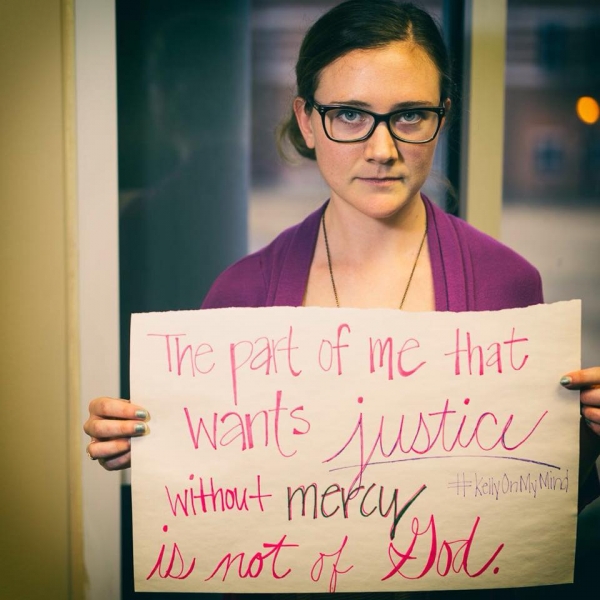 ¶ McAfee School of Theology student Jordan Yeager (pictured at left, photo by David Garber) has been an advocate on behalf of Georgia death row inmate
¶ McAfee School of Theology student Jordan Yeager (pictured at left, photo by David Garber) has been an advocate on behalf of Georgia death row inmate 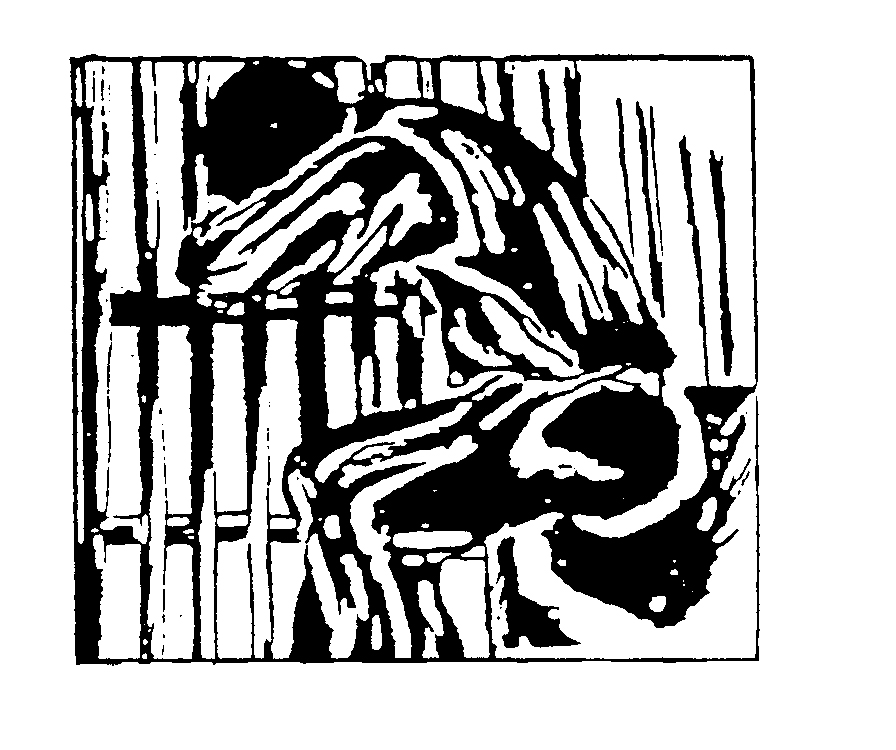 story.
story.